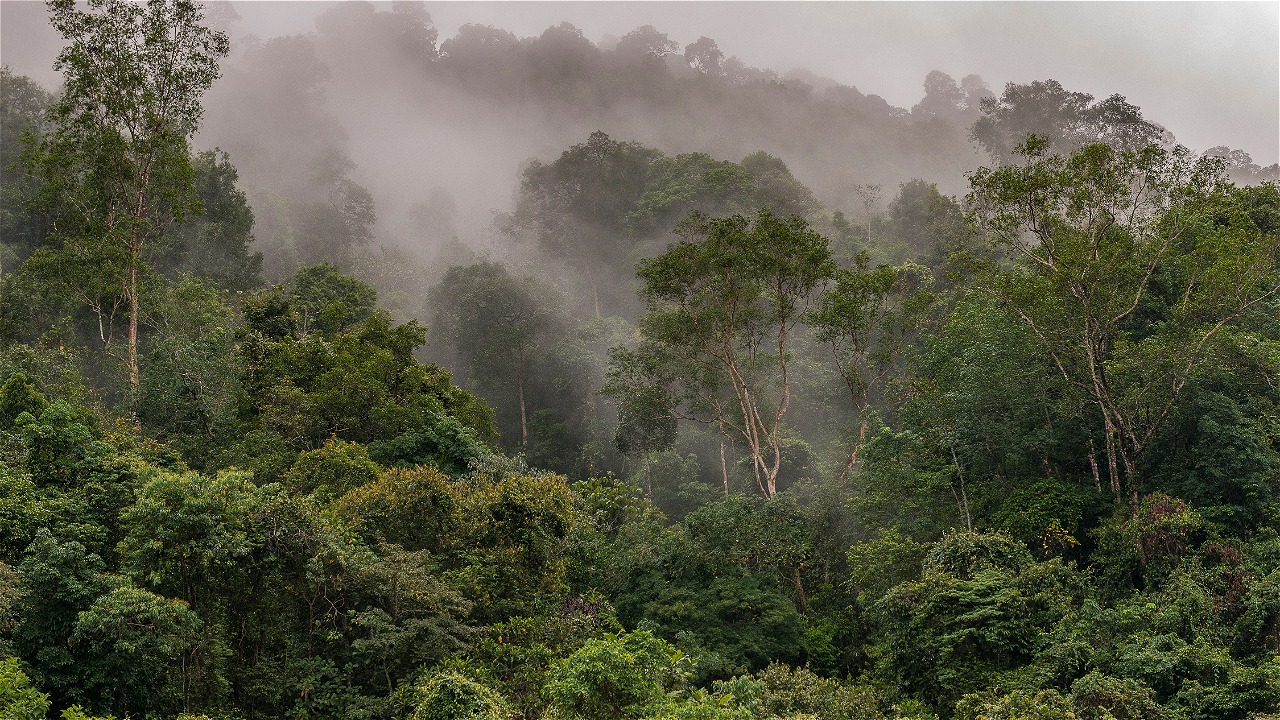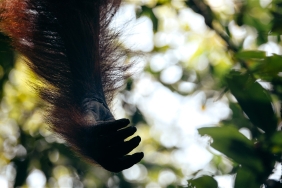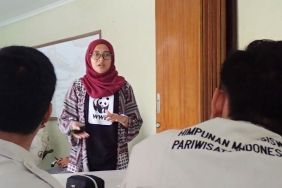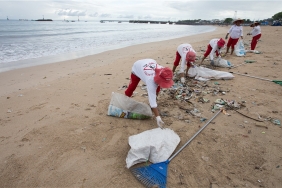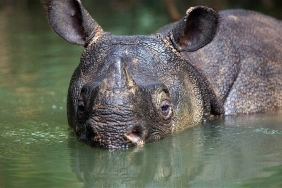ICCA KNOWLEDGE SHARING & CAPACITY BUILDING REGIONAL MEETING
While the Indonesian government has shown a strong commitment to resolving land tenure issues, including: making plans to assign 12.7 million hectares of forest land to local communities and amending the law on biodiversity protection, as well as focusing on protection areas and territories of local communities. The ICCA represents one way to speed up the process of documentation and registration of indigenous peoples' land, which was endorsed by the Constitutional Court No 35 in 2012. The Ministry of Home Affairs issued Regulation No 52/2014, which is in line with the Constitutional Court Law. This Ministry of Home Affairs regulation is a guideline for the recognition and protection of indigenous communities. Similarly, the Ministry of Agriculture issued Regulation No. 9/2015 on the recognition of community land rights. Then the Ministry of Environment and Forestry issued a regulation on customary forests in Ministerial Regulation No. P32/MenLHK-Setjen/2015. And there are also more and more regulations being issued at the provincial and district levels. All of this is imperative for a fair and legitimate allocation of "open" forest land and a more sustainable and equitable management of Indonesia's natural resources.
The ICCA Knowledge Sharing & Capacity Building Regional Meeting was held in Lombok (Indonesia) on August 17-22, 2015, and was hosted by Working Group ICCAs Indonesia (WGII), UNDP GEF-SGP and ICCA Consortium, with additional financial support from WWF Indonesia. The event was attended by participants from several countries, including: Indonesia, Philippines, Malaysia and Vietnam. It aimed to build capacity on ICCA in Indonesia and Southeast Asia, and to encourage collective reflection and knowledge sharing on some of the key issues, opportunities and challenges/problems of ICCA recognition and support in policy and practice. Catharina Dwihastarini from UNDP-GEF-SGP stated that "This event is made possible by the ICCA Global Support Initiative or GSI which is a collaborative initiative supported by UNDP GEF SGP, German Ministry of Environment (BMU), ICCA Consortium, IUCN and UNEP WCMC. With the main objective of assisting the development of appropriate recognition and support for ICCA as well as promoting its effectiveness through capacity building in approximately 26 pilot countries. In Southeast Asia, the pilot areas include Indonesia, Philippines, Malaysia and Vietnam."
ICCAs are increasingly recognized as a way to protect indigenous peoples and local communities, in securing their collective rights and responsibilities over land, water and natural resources, as well as fostering respect for their traditional knowledge, practices and institutions. These aspects received particular attention at the World Parks Congress in Sidney (Australia) in November 2014. Forest and marine areas, as well as lakes, rivers and other key habitats traditionally managed by indigenous and local communities, also play an important role in sustaining their livelihoods, water and food security, as well as protecting their traditional identity and pride. "In times of ruthless exploitation of natural resources and top-down conservation systems, many regions are calling for strengthening local ties to manage natural resources directly, adapting indigenous knowledge, wisdom and institutions, and involving fair negotiations among partners. ICCA is an opportunity to protect fairly and effectively" this was stated by Grazia Borrini-Feyerabend, Global Coordinator of the ICCA Consortium, an organization that brings together representatives from thousands of ICCA administrators around the world.
Since the first ICCA meeting in Bogor in October 2011, ICCA documentation has become very strong across the archipelago from Sumatra to Kalimantan, Lombok, Maluku Islands and Papua. "ICCA documentation is the first step towards the registration of all indigenous lands in Indonesia and the recognition and integration of provincial and district spatial planning" said Kasmita Widodo, Chairperson of the Indigenous Territory Registration Agency (BRWA) and WGII coordinator. "BRWA, an independent organization of the Indigenous Peoples Alliance of the Archipelago (AMAN), has so far registered and recorded 6.8 million hectares of customary land in Indonesia."
In the management of local community resources, East Lombok District has recognized local wisdom and it is written in East Lombok District Regulations No 9/2006 and No 10/2006. Both regulations recognize awig-awig, as a participatory customary approach to sustainable resource management. Mr. Amin Abdullah, chairman of the Fish Resource Management Organization (KPSDN), a local fishermen group in Jor Bay, supports the awig-awig regulation as a traditional form of fisheries and coastal resource management. According to Abdullah, "Awig-awig is a companion strategy in the fisheries sector that still needs government support, community awareness and cooperation in marine traditions to be intensified; aiming for the protection and sustainable development of local fishermen's lives".
KIARA (People's Coalition for Fisheries Justice) urges the Ministry of Maritime Affairs and Fisheries to focus more on empowering local communities in managing their marine areas. "We realize that the changes to the marine and small islands law have not recognized the rights of local communities to manage marine resources, especially those resources that are the basic necessities of their lives. The changes to the law also put communities in an unfair position; they are in direct competition for natural resource management vis-à-vis big players from the private sector," argues Marthin Hadiwinata, KIARA's Representative on Law and Policy. "We will continue to work with the Ministry and local communities to ensure that empowerment will become a reality."
-------------------
The ICCA Indonesia Working Group (WGII) was formed to promote ICCA practices and advocate for formal group recognition, as a form of balancing needs and aims for the protection of critical ecosystems and also securing the rights of local and indigenous communities. Member organizations are Indonesian non-governmental organizations active in advocacy and best practices in natural resource management and environmental protection, community mapping, land use and tenure, community benefits and rights as well as indigenous peoples recognition; such as: AMAN, BRWA, JKPP, Huma, Kiara, NTFP-EP, Pusaka, Sawit Watch, WALHI, WWF Indonesia. Currently this working group is coordinated by the Chairperson of BRWA. And NTFP-EP Indonesia is hosting WGII.
ICCA Consortium is an international association dedicated to promoting the purposeful introduction of Indigenous Peoples' and Community Conserved Areas and Territories (ICCAs) and supporting ICCAs in regional, national and global arenas. The Consortium consists of: MEMBERS (Indigenous People Organizations (IPOs) and Community Based Organizations (CBOs) and community organizations working with indigenous peoples/local communities) and Honorary Members (individuals who share similar concerns and expertise with respect to ICCA). As a global institution, the Consortium collaborates with the CBD secretariat, GEF SGP, UNEP WCMC, IUCN, research and advocacy organizations and UN mechanisms that promote humanity and the rights of indigenous peoples and local communities.
Established in 1992, the same year as the Rio Earth Summit, the GEF Small Grant Programme forms the essence of sustainable development by "thinking globally acting locally". By providing financial and technical support to projects that protect and restore the environment; while at the same time improving the prosperity and lives of people. SGP demonstrates that community action can maintain a balance between human needs and environmental interests.
For more information, contact:
Mr. Kasmita Widodo
Coordinator - Working Group on ICCAs in Indonesia
kwidodo@gmail.com
+62-815-1302-4601
Ms. Tanya Conlu
Regional Coordinator for Southeast Asia - ICCA Consortium
tanyantfp@yahoo.com
+63-917-312-0191
Catharina Dwihastarini
Coordinator - SGP Indonesia
dwihastarini@sgp-indonesia.org
+62-815-1103-4358

